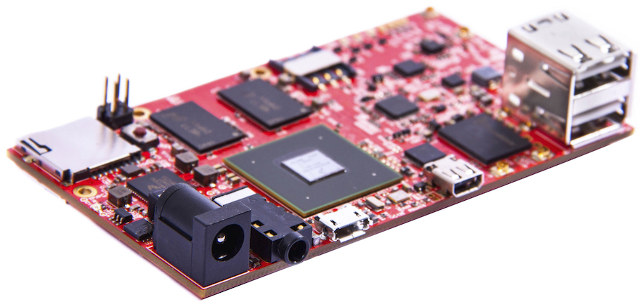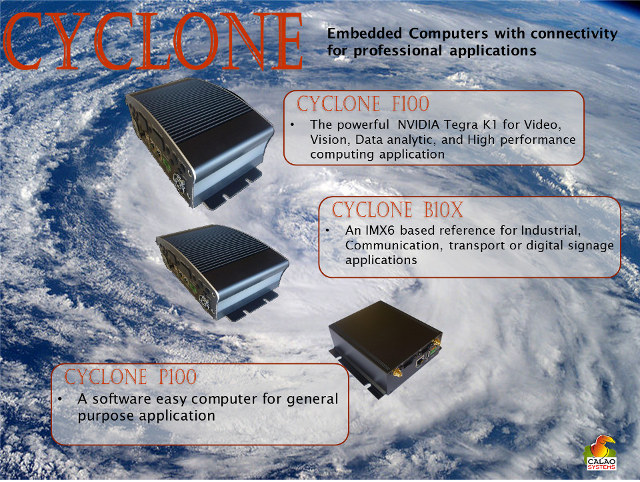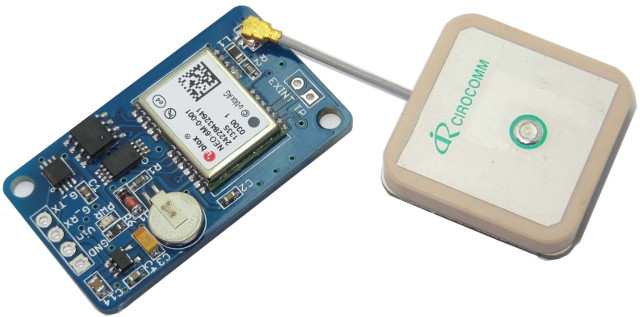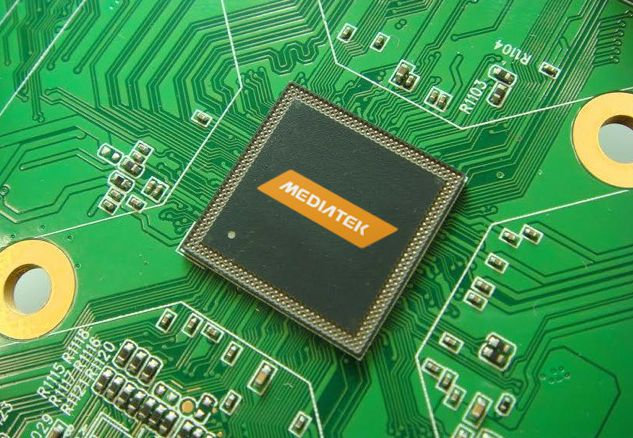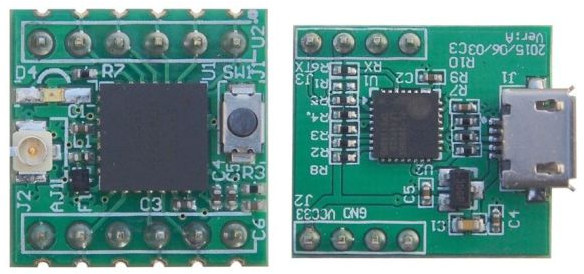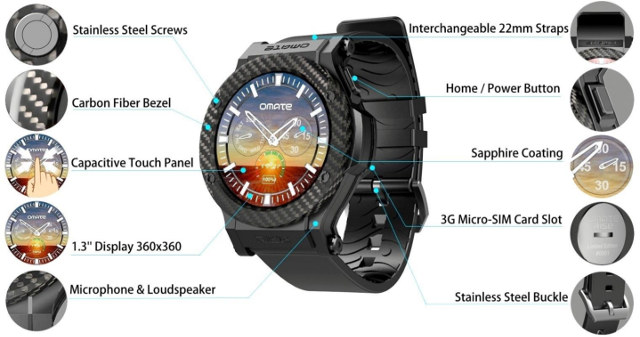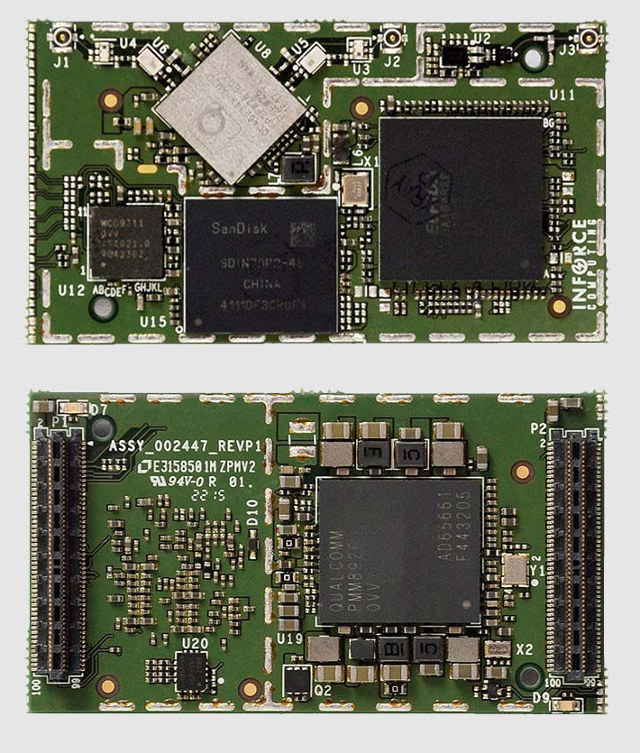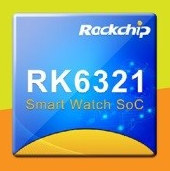Saying that the market now provides a wide range of development boards is probably an understatement, but Code Ing has found out that most hobbyist boards had limited on-board wireless connectivity with WiFi and Bluetooth basically the best you could expect, with any extra wireless functionality requiring USB dongles. So the company designed PixiePro single board computer powered by NXP i.MX6Q quad core Cortex A9 processor with on-board wireless connectivity including WiFi 802.11ac, Bluetooth 4.2, GPS/GLONASS, NFC and a 3G module. PixiePro board specifications: SoC – NXP i.MX6Q quad core Cortex A9 processor @ 1 GHz with Vivante 2D and 3D GPUs System Memory – 2GB 64-bit DDR3 Storage – 2x UHS-I micro SD card slot up to 104 MB/s Video Output – micro HDMI up to 1080p60 Audio Output – HDMI and 3.5mm mini TOSLINK optical port/Line Out Connectivity WiFi 802.11 a/b/g/n/ac 2×2 MIMO with two antenna connectors Bluetooth […]
CYCLONE F100 Tegra K1 Fanless Embedded Computer Supports up to 8GB RAM, SATA, and Various Networking Options
Calao Systems has added a new member to the their rugged embedded computers family with Cyclone F100 powered by Nvidia Tegra K1 quad core Cortex A15 processor with up to 8GB RAM, optional industrial grade SATA Nandrive, and mSATA, dual Gigabit Ethernet, and mPCIe connectivity options for IoT and M2M with LoRA, WiFi, RF radios, etc… Target applications include surveillance, identification, transport, robotic, graphic enhanced digital signage, and medical equipment. Cyclone F100 specifications: SoC – Nvidia Tegra K1 quad-core ARM Cortex A15 processor @ 2.3 GHz with 192-core Kepler GPU supporting OpenGL 4.4, OpenGL ES 3.1 and CUDA/GPGPU System Memory – 2 GB DDR3L (Options for 4 and 8GB on request) Storage – 8 GB eMMC, 8 MB SPI flash and micro SD card slot. Optional: Industrial grade SATA Nandrive, mSATA socket Video Output – HDMI, options: LVDS and DisplayPort Audio I/O – HDMI, optical S/PDIF out, Mic In / […]
Ublox NEO-6M $10 GPS Module with Antenna Works with Arduino, Raspberry Pi, etc..
Last week, I wrote about NavSpark Mini a $6 GPS + Beidou module, that’s also available for “free” plus $10 shipping. However, if you don’t have an antenna, you’d also need to add a $9 antenna, bringing the total price to $19 for this low cost GPS solution. But there’s actually a cheaper alternative with Ublox NEO-6M GPS module, as it sells for $10 with a GPS antenna including shipping on either Aliexpress or eBay. Ublox NEO-6M based GPS module specifications: NEO-6M-0-001 module Storage – EEPROM for configuration data External interfaces – UART; default baudrate: 9600 bps Misc – RTC battery (MS621FE) Power Supply – 3 to 5V The battery may not always be included due to transport regulations, so you may have to purchase it separately and solder it yourself. The module is not exactly new, and has been around at least since 2013, so there’s also some documentation, […]
Mediatek Unveils MT2523 SiP for GPS Enabled, Bluetooth LE Wearables
Silicon manufacturers are starting to launch ever more integrated solutions specifically designed for wearables, and after Samsung S3FBP5A bio-processor unveiled a few days ago, MediaTek has launched MT2623 ARM Cortex M4 System-in-Package (SiP) with GPS, Bluetooth LE, and a MIPI DSI interface. Other details are sparse but here’s what the company disclosed for MT2523: MCU core – ARM Cortex M4 GPU – 2D accelerator supporting true colors, per-pixel alpha channel, anti-aliasing fonts, and 1-bit index color to save memory. Connectivity – Dual-mode Bluetooth Low Energy and GPS Display – MIPI DSI and serial interfaces Integrated PMU Battery Life – More than a week (typical) The SiP’s printed circuit board area is said to be 41% percent smaller than competitors’ solutions. MT2523 will be available to manufacturers in H1 2016, and found in active and fitness smartwatches a little later. Thanks to Nanik for the tip. Jean-Luc Aufranc (CNXSoft)Jean-Luc started CNX Software […]
NavSpark mini is a $6 Arduino Compatible GPS Board
One person asked me whether any of the low cost boards in my Raspberry Pi Zero vs CHIP vs Orange Pi One comparison post came with GPS, and the answer is not without some external hardware. The only low cost boards with GPS I could think of were LinkIt ONE and NavSpark. I wrote about the latter over 2 years ago when the board launched via a crowdfunding campaign, so I went to the update page to find out more about the current status, and found two updates made in the last 6 months, including one about Navspark mini, a tiny board with GPS support, removing the USB port and having fewer I/Os compared to its older brother. NavSpark mini specifications: MCU – Skytraq Venus828F 32bit LEON3 Sparc-V8 MCU @ 100MHz with IEEE-754 Compliant Floating Point Unit, 1024KB Flash Memory, and 212KB RAM GPS 167 channel Venus 8 engine Uses […]
Omate Rise is a $199 3G and WiFi Smartwatch Powered by Mediatek MT2601 SoC (Crowdfunding)
Most smartwatches sold on the western markets are designed to be smartphone’s companions, and only come with Bluetooth LE connectivity, while we’ve seen many smartwatches (aka watchphones) with SIM card slot originating from China in the past, including the lower end No.1 D3 smartwatch which I reviewed recently. But this may be changing, as Omate is going to launch a new smartwatch called Omate Rise that will include 3G connectivity via a micro SIM card slot, as well as WiFi, Bluetooth Smart, and GPS. Omate Rise specifications: SoC – Mediatek MT2601 dual core ARM Cortex A7 @ 1.2GHz with ARM Mali-400 MP GPU System Memory – 512MB RAM Storage – 4GB flash Display – 1.3″ round muti-touch color display with 360×360 resolution (Innolux) Connectivity – Bluetooth 4.1 LE (A2DP profile), WiFi 802.11 b/g/n, GPS Cellular Connectivity – 3.5G HSDPA (2100/1900 MHz), GPRS / EDGE /GSM (850/900/1800/1900 MHz); micro SIM card […]
Inforce Computing 6401 Micro SOM is a Qualcomm Snapdragon 600 System-on-Module
Inforce Computing announced their 6501 Micro SOM system-on-module based on Qualcomm Snapdragon 805 processor in Q2 2015, and the company informed me that they had just unveiled a lower power version based on Snapdragon 600 processor called 6401 Micro SOM, and still featuring WiFi, Bluetooth 4.0, and GPS connectivity on module. Inforce 6401 Micro SOM: SoC – Qualcomm Snapdragon 600 (APQ8064) quad core Krait processor up to 1.7 GHz with Adreno 320 GPU, and Hexagon DSP v4 up to 500MHz System Memory – 2GB PoP LPDDR2 @533Mhz (Optional 3GB) Storage – 4GB eMMC v4.4.1/v4.5, with options up to 64GB Connectivity – BT 4.0 , dual band 802.11n/ac Wi-Fi (QCA6234), and GPS (WGR7640) with WiFi and GPS antennas on carrier board Peripherals and I/O via two 100-pin SoM connectors: Video / Display – 1x HDMI, 2x MIPI-DSI (4-lane) & touch screen Audio 4x Line out, 3x Mic-in, 1x headphone out 8-channel […]
Rockchip RK6321 Dual Core Cortex A5 SoC Targets Wearables with WiFi, Bluetooth, 3G and GPS
Rockchip and Intel started to work on a platform called XMM6321 last year. It featured a dual Core Cortex A5 processor, 3G connectivity, WiFi, and GPS, which was aimed at entry level 3G smartphones and tablets. Fast forward to 2015, Rockchip showcased their RK6321 processor at the Hong Kong Electronics Fair, with very similar specifications compared to XMM6321, but instead it targets wearables such as smartwatches, or children and elderly tracker. So I’ m not quite sure whether Intel XMM6321 and Rockchip RK6321 are the same processor with a different name, or Rochchip tweaked RK6321 specifically for wearables. Key features of Rockchip RK6321 processor: CPU – Two Cortex A5 cores up to 1GHz with 32KB L1 D-cache, 32KB L1 I-cache, and 512KB L2 cache GPU – Supports OpenGL ES 2.0 Memory and Storage I/F – 16-bit LP-DDR2 SDRAM, 8-bit eMMC, 16-bit NAND Display I/F – MIPI DSI up to FWVGA […]


